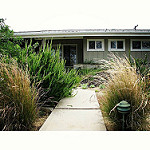Is 11:1-10
Ps 72:1-2, 7-8, 12-13, 17
Rom 15:4-9
Mt 3:1-12

It is hard to express just how much I love Advent. Really, I love Christmas (who doesn’t) and I am grateful to have Advent as a time to wait for Christmas so that when it really does come, I’m not already sick of it. In my family, we eat simple meals during Advent and avoid sweets and other desserts. We don’t listen to Christmas music. We decorate a Jesse Tree and wait to decorate the Christmas tree until Christmas actually arrives. We do family devotions each night around the Advent wreath. All of this makes us hungry for Christmas just at about the same time when the rest of the culture will snap if they hear another carol. Advent is also a time to place Jesus at the center of the season.
At its core, Advent is a penitential season. It is a time to pray, fast, give alms, and prepare. Prepare for what? Although Christmas is about the coming of baby Jesus, Advent is about the coming of Jesus again to judge the living and the dead. Christians often don’t like to think about judgment, especially during what feels like such a festive time, but also because it conjures up images of a wrathful God’s disapproving eye. On the contrary, another better understanding of judgment is one of revelation, that is, God revealing to us who we really are. Judgment is about truth. It is about stripping away our self-deceptions so that we might know ourselves truly. As such, it is both a painful and joyful thing–painful because we never quite live up to who we want to be (and that is particularly evident during penitential seasons as we struggle to overcome the desires of the flesh and the impetus of our surrounding culture), but joyful because the goal of judgment is truth. Moreover, judgment is a time for joy because in the process of being judged, the mercy of the One who judges us is also revealed.
The paradox of judgment is that on the one hand, nothing we do can ever merit salvation, on the other hand, we are held accountable for the way we freely lived our lives. So in conceptualizing judgment, we need to keep both God’s mercy in mind along with the importance of working to live righteous lives. And this brings us to our readings for this Sunday in which God’s mercy and justice are held in tension.
In our gospel, John the Baptist rebukes the Pharisees and the Saducees for relying too heavily on God’s mercy for them simply because they are part of God’s chosen people:
You brood of vipers!
Who warned you to flee from the coming wrath?
Produce good fruit as evidence of your repentance.
And do not presume to say to yourselves,
‘We have Abraham as our father.’
For I tell you,
God can raise up children to Abraham from these stones.
Even now the ax lies at the root of the trees.
Therefore every tree that does not bear good fruit
will be cut down and thrown into the fire.
The message is particularly apt for Christians today. Just being Christian is not enough. Our life must reflect the mercy we have been shown. What does that life look like? It looks like the kingdom that we are hoping to enter. In our second reading from Romans, Paul says to “think in harmony with one another” and “welcome one another as Christ has welcomed you.” And in our first reading from Isaiah, we get a beautiful series of images of the sort of peace and harmony the kingdom promises:
Then the wolf shall be a guest of the lamb,
and the leopard shall lie down with the kid;
the calf and the young lion shall browse together,
with a little child to guide them.
The cow and the bear shall be neighbors,
together their young shall rest;
the lion shall eat hay like the ox.
The baby shall play by the cobra’s den,
and the child lay his hand on the adder’s lair.
There shall be no harm or ruin on all my holy mountain.
Advent is a particular time to live out the kingdom and prepare for God’s coming. The quiet and the solemnity of the season is about carving out a space for Christ to come into our own lives to begin transforming us into “kingdom people.” It is about making the effort to live out the grace we have been given. And it is about living like children of the God who became a child for our sake.



